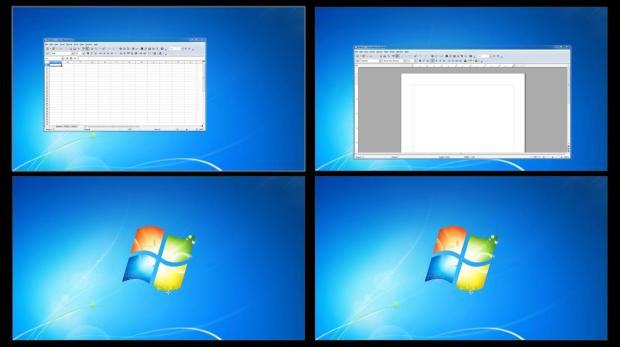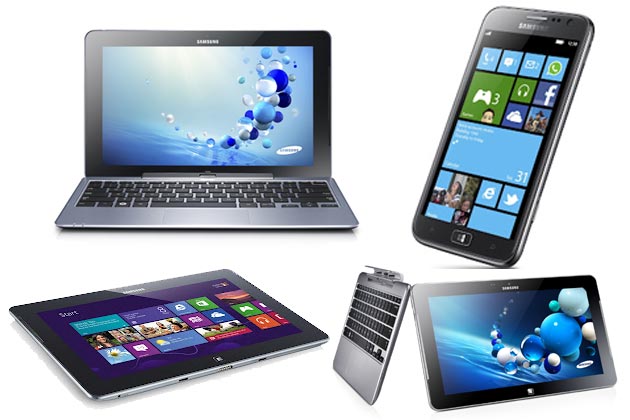Ivan Petkov
With the advent of smartphones and tablets, the release of the next operating system for laptops and desktop computers is not news. In this connection Microsoft’s Windows increasingly rarely draws the attention of average users. Moreover, the past years have not been the most successful for Microsoft in terms of their operating systems. The majority of users do not care and do not know which version of Windows they use on their personal computers. In the past, this favoured the sales of new laptops because users obtained the latest version of the operating version of Microsoft and life continued.

There have been some shocks over the years but nothing so serious, which the Redmond giant cannot handle. After the cold reception to Windows Vista, things seemed to have worked out with the advent of Windows 7 the user reception to which was more than warm. However, the shadow of Windows XP remained hanging over the company. The problem was that users did not want to upgrade to a newer version or rather did not find a reason to do so. Over the past few years users had tended to buy a tablet or smartphone instead of a new computer. We saw a slowdown in the PC market, the sales of mobile gadgets leaving behind those of desktop counterparts for the first time.
It seemed that the market for mobile devices was saturated and in the last quarters of the year, there was a recovery in the PC market. Analysts’ enthusiasm for good old PCs began to gather momentum again.
The problem with users’ reluctance to upgrade to the latest version of Microsoft's operating system proved to be versatile. The software giant took a few steps towards a radical change in the appearance and operation of Windows 8, which had an impact not only on users but also on its partners. As we know, the mobile era caught off the people in Redmond, leading to a strong desire of the company to change. Nevertheless, Windows 8, which had to build a bridge between traditional desktop computers and tablets, faced a very reserved reception on the part of both buyers and Microsoft partners, regardless of whether the reason for this was the hasty steps taken, the changing market or user conservatism. The market share held by the operating system had even declined in the recent quarters.
Market observers commented that over the past few months, Microsoft itself had begun to rarely use the name of its latest operating system. The return of the Start menu that was promised in April will not happen for Windows 8. Its failure was quietly acknowledged. To this, we must add the fact that with the release of its own line of Surface tablets, Microsoft suffered a loss of 1.7 billion dollars. Obviously it cannot meet user expectations, although the latest model of the Surface tablet has impressive performance and design.

Many users decided to skip Windows 8: 75% of all PC users are still using Windows 7 or XP.
All are looking to the next version of Windows, 9. Microsoft hopes to convince users that it will be worth upgrading to Windows 9. This will however require a lot more arguments than the return of the Start menu, which was removed in the eighth version of the operating system - 7 and XP users anyway have it. The option of launching in a separate window directly on the desktop screen the so-called "advanced applications" that Microsoft unsuccessfully tried to put into Windows 8 will not be enough either.
 This time, Microsoft will have to listen to its users. Inside news shows that the Charms bar that constantly pops up and that is unpleasant for many users will be removed. Overall Windows 9 will try to return to its roots and essence, namely by being a desktop operating system when running on a desktop PC. For advanced users Microsoft will introduce virtual screens that have been present in Mac OS and Linux OS for years. Desperate times call for desperate moves. This functionality was repeatedly rejected in the past. In practice, it can be hidden and unnoticeable for ordinary users. The hope is for advanced users and technological media that form the attitude to the developments in the field of information technology to receive it well. In addition, this version will facilitate developers, as their applications will run on all types of Windows devices, a PC, tablet and phone. The concept is "write once, run anywhere" but on Windows devices of course.
This time, Microsoft will have to listen to its users. Inside news shows that the Charms bar that constantly pops up and that is unpleasant for many users will be removed. Overall Windows 9 will try to return to its roots and essence, namely by being a desktop operating system when running on a desktop PC. For advanced users Microsoft will introduce virtual screens that have been present in Mac OS and Linux OS for years. Desperate times call for desperate moves. This functionality was repeatedly rejected in the past. In practice, it can be hidden and unnoticeable for ordinary users. The hope is for advanced users and technological media that form the attitude to the developments in the field of information technology to receive it well. In addition, this version will facilitate developers, as their applications will run on all types of Windows devices, a PC, tablet and phone. The concept is "write once, run anywhere" but on Windows devices of course.

The first public version of Windows 9 will be released in the autumn and the final version at this time next year. This means that Microsoft will have a year to hear the opinions and recommendations of users. This did not happen with Windows 8 and the results were very negative for the company. User reception to Windows 9 will be critical for Microsoft because a possible failure of the new operating system would hamper its development.

In recent months we have seen many key changes undertaken by new CEO Satya Nadella. Analysts are optimistic and believe that the company has a chance to regain user confidence. Autumn is at hand and we will soon see whether these hopes will materialize.